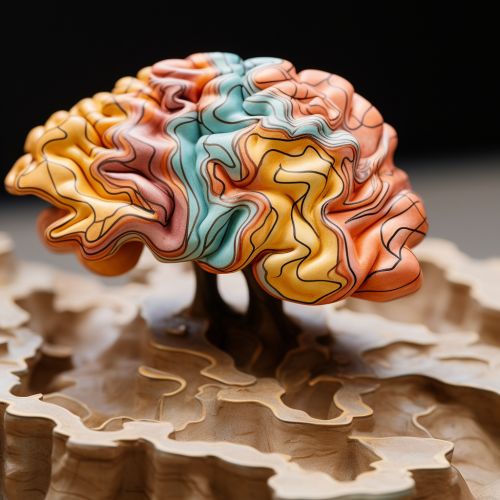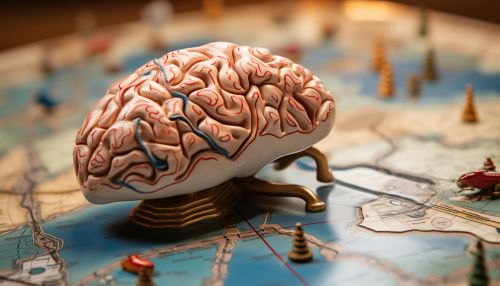Cognitive Neuroscience of Cognitive and Social Therapy
Introduction
Cognitive neuroscience is a branch of neuroscience that studies the biological processes that underlie cognition, especially in relation to the brain and its functioning. It combines principles of psychology and neurobiology to understand how the brain influences cognitive functions such as attention, memory, and problem-solving. Cognitive and social therapy, on the other hand, is a psychological approach that aims to improve mental health by changing dysfunctional thinking, behavior, and emotional responses. This article explores the cognitive neuroscience of cognitive and social therapy, delving into the neural mechanisms that underlie therapeutic interventions and their impact on cognitive processes.


Cognitive Neuroscience
Cognitive neuroscience emerged from cognitive psychology, a discipline that studies mental processes such as perception, memory, and problem-solving. Cognitive neuroscience extends this focus to the biological substrates of these processes, particularly the role of the brain in cognition. It employs a range of methodologies, including neuroimaging techniques such as functional magnetic resonance imaging (fMRI) and electroencephalography (EEG), to visualize brain activity and identify the neural correlates of cognitive processes.
Cognitive and Social Therapy
Cognitive and social therapy, also known as cognitive behavioral therapy (CBT), is a form of psychological treatment that addresses maladaptive thought patterns and behaviors. It is based on the cognitive model of psychopathology, which posits that individuals' perceptions and interpretations of events, rather than the events themselves, determine their emotional responses and behavior. CBT aims to help individuals identify and change these dysfunctional cognitions, thereby improving their emotional well-being and behavioral functioning.
Neural Mechanisms of Cognitive and Social Therapy
Cognitive and social therapy is grounded in the cognitive model of psychopathology, which asserts that dysfunctional cognitions underlie mental health disorders. This model is supported by a wealth of evidence from cognitive neuroscience, which has identified the neural correlates of these dysfunctional cognitions and elucidated the mechanisms by which CBT can alter them.
For example, research has shown that individuals with depression often exhibit hyperactivity in the amygdala, a brain region involved in emotional processing, and hypoactivity in the prefrontal cortex, which is responsible for cognitive control and emotion regulation. CBT has been found to normalize these neural abnormalities, suggesting that it may exert its therapeutic effects by modulating brain activity.
Similarly, studies using fMRI have demonstrated that CBT can alter brain connectivity, particularly in networks associated with self-referential thinking and emotion regulation. These findings suggest that CBT may work by changing the way different brain regions communicate with each other, thereby altering the neural dynamics underlying dysfunctional cognitions.
Impact of Cognitive and Social Therapy on Cognitive Processes
Cognitive and social therapy can have profound effects on cognitive processes. By helping individuals identify and change dysfunctional cognitions, it can improve various aspects of cognition, including attention, memory, and problem-solving.
For instance, research has shown that CBT can enhance attentional control, reducing attentional biases towards negative information and increasing attention to positive information. This can help individuals with mental health disorders such as depression and anxiety, who often exhibit a tendency to focus on negative stimuli.
CBT can also improve memory functioning. By changing maladaptive thought patterns, it can reduce the impact of negative memories and enhance the recall of positive memories. This can help individuals with post-traumatic stress disorder (PTSD), who often struggle with intrusive memories of traumatic events.
Furthermore, CBT can enhance problem-solving skills. By teaching individuals to challenge their dysfunctional cognitions and develop more adaptive ways of thinking, it can improve their ability to solve problems and make decisions. This can be particularly beneficial for individuals with disorders such as obsessive-compulsive disorder (OCD), who often exhibit rigid thinking patterns and struggle with problem-solving.


Conclusion
Cognitive neuroscience provides a valuable framework for understanding the mechanisms of cognitive and social therapy. By elucidating the neural correlates of dysfunctional cognitions and the ways in which CBT can alter them, it offers insights into the biological basis of therapeutic change. Moreover, by demonstrating the impact of CBT on cognitive processes, it underscores the potential of this approach for improving cognitive functioning and mental health.
